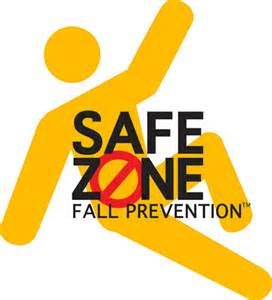
Keeping our balance is one of those things we often take for granted, just like walking, or breathing easy. However, as we get older, these things that were once easy can turn into chores. Or, in some cases, genuinely difficult tasks.
If falls are a serious risk for you, whatever the reason, then here are some simple things you can do to make sure they happen as rarely as possible in your life.
Tip #1: De-Clutter Your Environment
Take a moment to look around your living space. Are you one of those folks who has a place for everything? Or are you a little more free-form when it comes to your organization skills? Because if you want to avoid falls, then getting rid of clutter is the first thing you should do.
Some de-cluttering steps are obvious. Make sure dirty clothes are in a hamper or a basket, put books and magazines on tables or shelves, and keep your shoes in a cubby rather than on the floor. However, you should also get rid of things like throw rugs, runners, and any decorations that might get under your feet. This is particularly true on and near stairs, where a fall could lead to more than a bruised hip.
Tip #2: No More Slippery Socks
While the idea of house shoes might seem silly, it can be a life saver if you want to avoid falls. Because while fluffy wool socks and floppy slippers are undeniably comfortable, they are also a major tripping hazard. This is especially true if they aren’t on tightly, or if you have hardwood or tile floors in your home (or any of the aforementioned throw rugs that are prone to slip and slide across smooth surfaces). For some extra protection, wear slippers that fit like shoes, or the house socks that have rubber grips on the bottom. They’re just as effective for keeping warm, but they don’t have the risks of they’re smooth-soled cousins.
Tip #3: Listen To Your Body
One of the biggest mistakes we make is to ignore the warning signs when our body is trying to tell us something. If you’re out-of-breath, for example, take a moment to normalize. If you’re feeling dizzy or light-headed, there’s no shame in staying in your seat until the sensation passes. If you need a walking stick, or a brace, then use them. Even when you’re just going down the hall, or it shouldn’t be that big of a deal. It’s always the, “just this onetime,” situations that result in falls, so minimize those occurrences whenever you can.
Tip #4: Exercise Regularly
Exercise is one of those habits a lot of us just don’t bother with once we’re no longer in gym class, but you don’t need to be trying to impress someone to hit the gym. Regular exercise, in addition to just being plain good for you, also keeps your body in working order. Think of it as preventative maintenance. A regular routine will ensure your muscles are responsive, that your joints are in working order, and it will help make sure you have the necessary reflexes to catch yourself before you can fall. And, in the event that you do end up meeting unexpectedly with the floor, you’re likely to sustain fewer injuries if you regularly exercise than you would if you didn’t.
Tip #5: Turn on The Lights
One of the biggest causes of falls is walking around in the dark. While turning on the lights might seem like the most basic thing in the world, many falls are caused by unexpected trips to the bathroom, or short walks to get a glass of water. While it might seem like a momentary frustration when you’retired and used to the dark, just turn on the lights. It’s better to be safe than sorry.